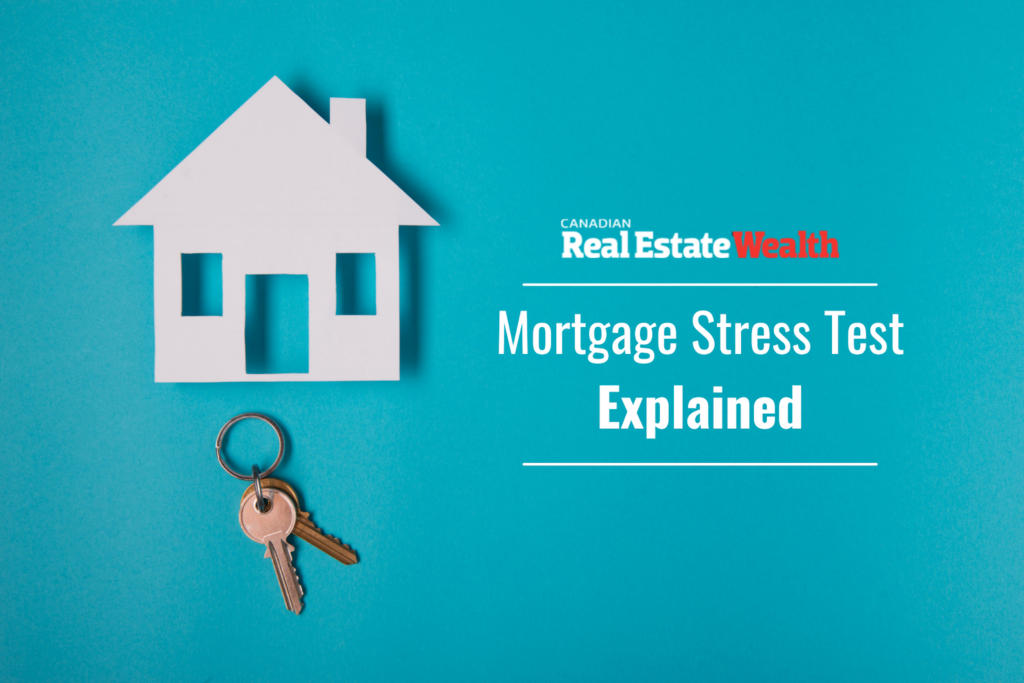Last Updated on October 24, 2023 by Corben Grant
Since the mortgage stress test was introduced, it has been a hot topic for Canadian homebuyers. The stress test introduced a way for the Canadian government to protect Canadians and lenders against mortgage default and is applied to anyone who wants to begin a and some who are renewing.
However, although the mortgage stress test touches just about everyone who is buying a home in Canada, many people still do not understand the circumstances that lead to its creation, its purpose, and how it affects their real estate purchase.
Understanding the stress test is crucial for anyone who is looking to purchase real estate, If you are unable to pass the stress test, you will not be able to complete your home purchase – though there are ways to help yourself pass more easily. In this article, we will explain everything you need to know about the Canadian mortgage stress test.
History of the
The mortgage stress test began as an idea in the mid-2010s. The purpose of the test was twofold: for one, the government wanted to prevent Canadian household debt from running rampant and for the Canadian economy to be protected from instability as a result of an overleveraged population. At the same time, house prices were on a continuous rise and the stress test offered a partial solution. By making more buyers ineligible to buy a home, the hope was that some demand in the market would be reduced.
The scope and strength of the mortgage stress test have also varied. Originally, the stress test only applied to insured mortgages but has since been expanded to uninsured mortgages as well. The minimum qualifying rate for the mortgage stress test has varied, though it has generally remained around the 5% level. The Bank of Canada adjusts the rate based on current mortgage interest rates and other market conditions.
What is the ?
If you are stressing about how much studying you need to do to pass your stress test – don’t be. It isn’t that kind of test. Rather, the stress test is a process that your mortgage lender will apply to model how your mortgage affordability could handle an increase in rates.
The idea is that banks want to be sure that they will be repaid when they offer a mortgage. Sure, a single default wouldn’t affect their bottom line, but a larger economic trend that causes rates to quickly increase across the board would cause defaults en masse, resulting in massive disruption. The stress test, therefore, is a means for the bank to help prevent this scenario.

Why is it needed?
The mortgage stress test is simply a way to future proof the mortgage loans that are being offered in Canada. Mortgage loans make up a huge amount of our national and the housing industry is fundamental in the Canadian economy. As a result, the stress test helps to ensure that our market can remain stable and to protect our financial institutions. Events like the 2008 housing crash in the U.S. are within recent memory and are an example of what can happen when a major shock to the housing market causes effects across the wider economy.
This is particularly pertinent in the current environment of all-time low-interest rates. Though many homeowners are excited to get in on these low rates, everyone is aware that these rates are not here to stay. They will increase and it’s better to prepare for that now than to deal with the consequences later.
This doesn’t mean that the Bank of Canada actually expects rates to increase to 5.25% for example, but it must be considered as a worst-case scenario.
Mortgage stress test rules
When you receive a mortgage, your lender will determine how much of a mortgage loan you can afford by examining your income levels, debt ratios, and your interest rate. Since mortgage terms are shorter than their full amortization period, and with the existence of variable-rate mortgages, you are very likely to have different rates over the course of your mortgage. Your bank needs to consider not only if you can afford a loan now, but if you can afford a loan in five, 10, 25 years, or more. Given the volatility of the market, there is no telling how rates will change so the mortgage stress test is a way to add some level of security to your loan.
The way the stress test works is pretty simple. Essentially, the lender is looking at they would use to determine your loan affordability now but applying a higher rate to see if you can still make payments. The rate that they will use is a minimum of 5.25% currently, or your current mortgage rate plus 2%, whichever is higher. This rate is known as your qualifying rate.
It’s notable that the stress test only tests a single variable: interest rates. If your income decreases in the event of a job loss, your expenditures go up, or your debt capacity grows, you may still find yourself unable to pay your mortgage. Unfortunately, banks cannot predict these sorts of life events in all situations. The difference is that these factors tend to affect individuals, whereas rate increases affect all mortgages across the board. Therefore, the bank is more likely to be able to handle individual defaults rather than a more widespread rate increase.
Who does it apply to?
The mortgage stress test applies to just about anyone who is looking to get a mortgage today. If you are renewing your mortgage, you will not need to undergo the stress test again unless you have moved your mortgage to a new lender, in which case, they will have to apply the stress test before lending to you.
Some alternative lenders that are not federally regulated in the same way as the big lenders do not need to stress test their borrowers. However, many will still choose to utilize the stress test for their own security.
How can I pass?
If you are wanting to buy a home, you are going to have to pass the mortgage stress test. Fortunately, no mortgages are set in stone until the money is lent and there are many variables and options you have that can help you achieve your goal of homeownership by passing the mortgage stress test.

Find a lower interest rate
One of the most obvious ways would be to look for lower mortgage rates. This will only work for those who are being tested above the 5.25% benchmark qualifying rate as this is the lower limit for the stress test. Lowering your interest rate will not only help you to pass the test but will also help you pay less for your mortgage as well, which is a major benefit.
Naturally, everyone wants to get the lowest rate and it’s often out of our hands, but there are some things that you can try to change to influence your rate. For example, you may be able to improve your credit score so the bank offers you a better rate, or, you may be able to shop around with the help of a mortgage broker to find a lender that will offer you a more favourable rate. Though this may be a bit of a process (and there is no way to guarantee it will work), if you are actually able to lower your rate it will be well worth your time.
Decrease your mortgage payments or increase down payment
Another way to help yourself pass the stress test is by lowering your monthly payments. This will depend on your interest rate, but can also be affected by things like your amortization period or your down payment. If you choose to take a longer amortization period, you can pay lower monthly mortgage payments at the expense of higher interest over the life of your loan, however, it may help you pass the stress test. You can also lower your monthly payments by putting up a higher down payment. Not only can a higher down payment reduce your monthly mortgage payment, it can also offer you a lower interest rate and save you money on mortgage default insurance if you can offer a down payment of 20% or more.
Lower your debt obligations
Another way to help pass the test is to reduce debts. Your lender will consider when seeing if you qualify for a mortgage, those being the gross debt service ratio and the total debt service ratio. Your gross debt service ratio will depend on the home price you are looking to buy, but your total debt service ratio can be lowered by reducing your other debts such as student loans, car payments, or credit card debts. If you delay your purchase for long enough to pay off some of your existing debt, it may free up enough of your income to qualify.
Use a co-applicant
You may also want to opt for applying for a mortgage with a co-applicant. This may be your spouse, a family member, or if your lender allows it, a friend or more distant family member. This can help as the lender will consider both applicants’ financial situations, which can average the situation if one of the applicants has poor financials.
Increase your income
The next tip is easier said than done, which is to increase your income. Obviously, most people would do this if they could, but it is usually out of our control. If you need to make way more money to qualify, this will be tough to pull off, however, if you need just a bit more to push you over the line, you may consider a job change or a second source of income to supplement your earnings. An increase in earnings may also help you with other factors like growing your down payment.

Find a lower-priced property
Finally, you may simply need to consider other options when it comes to buying. If you have your heart set on a dream home but it’s beyond your financial reality, then the hard truth is you need to move on. You will be thankful in the end when you don’t end up defaulting on your loan or house-poor as a result of over-extending yourself. Consider looking at a different size of the home, a different housing type, or in a different area that may be more affordable.
Unable to qualify?
If none of the above tips work for you, there may still be some avenues open for you to get a mortgage. There are alternative lenders, such as credit unions, private lenders, and mortgage finance companies who are able to fund mortgages without needing their borrowers to pass the mortgages stress test. However, these alternative lenders know that you are more desperate for the money and that you present a much greater financial risk as a borrower. Because of this, you can expect to pay a lot more interest when going with one of these options. Seriously consider if it’s worth it when looking at alternative lenders and speak to a mortgage broker who can help you find the best options for you to protect you from any potential downfalls.
The bottom line
Though the mortgage stress test is a relatively new thing that home buyers have to contend with, it seems, for the time being, that it’s here to stay. Especially amid the high prices on homes and the huge demand, it’s important that you know about the mortgage stress test so you can get the best shot at actually buying your home. Good luck!
Corben joined CREW as a relative newcomer to the field of real estate and has since immersed himself and learned from the experts about everything there is to know on the topic. As a writer with CREW, Corben produces informative guides that answer the questions you need to know and reports on real estate and investment news developments across Canada. Corben lives in Guelph, Ontario with his partner and their two cats. Outside of work, he loves to cook, play music, and work on all kinds of creative projects. You can contact Corben at corben@crewmedia.ca or find him on Linkedin at https://www.linkedin.com/in/corbengrant/.









